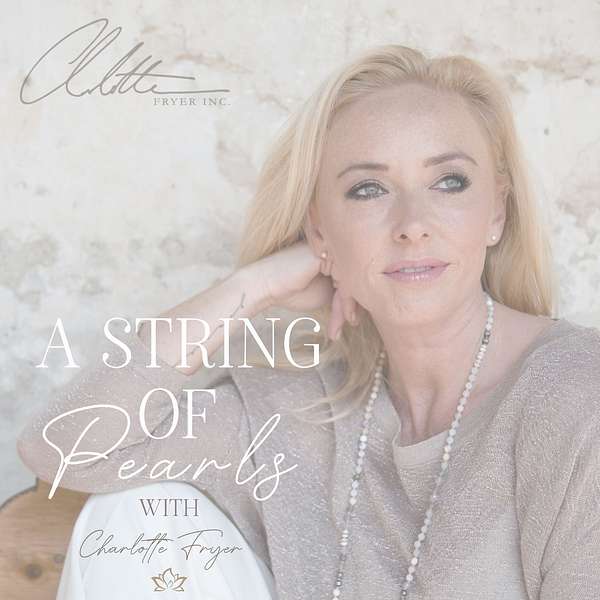
A String of Pearls
A String of Pearls covers a wide range of topics from perception to manifestation, crisis and recovery, soul mates to sacred contracts. These pearls are extracts from conversations I have had over the last 25 years navigating thousands of individuals, couples, families, and professionals through the great tipping points of change and transformation. It is my hope that somewhere in your listening you find a pearl or two that has personal meaning to your journey. May they be strung together to offer an intimate thread of hope, inspiration and comfort as you continue to journey through this often challenging, yet miraculous gift of life.
A String of Pearls
Depression & Anxiety
Use Left/Right to seek, Home/End to jump to start or end. Hold shift to jump forward or backward.
The time machine of shame.
0:00:54.2 Charlotte: Depression and anxiety is a huge topic and it's sadly an epidemic, it's on the rise. And there are far more people who experience anxiety and depression than, or even in the statistics. People feel ashamed of anxiety and depression. So it's a common, it's a common threat throughout the human condition. And there are many things that I could talk into when it comes to anxiety and depression. I've had vast experience with helping people on the spectrum from mild anxiety to people that have panic disorder, people with manic depressive disorder to people that go through transient depressive episodes. But to break it down, when working with someone who has anxiety and depression, I try and, to simplify it. And I believe that depression is by and large a regret over the past. And anxiety is fear of the future. And these two are very closely correlated.
0:02:17.5 Charlotte: For instance, if you have regret over the past, you are looking at the past and wishing you could have or should have done different. There's then shame that surrounds that. And then that shame turns you inward. It causes a stagnation and most profoundly, it causes you to question your ability to make healthy choices. If you are focused on the mistakes that you made, the losses that you've occurred, and the ways in which you didn't empower yourself, then that continues to feed to the inner child that you as an adult aren't an empowered parent on their behalf, therefore, when looking into the future, it would only make sense that there would be an anxiety around it because the future is unknown. And The future is not predictable, and this is where, you know, one's faith or one's connection to living purposefully, one's connection to destiny and one's relationship with the universe also comes into play.
0:03:48.3 Charlotte: But again, for a simplicity, if we just look at that logical fundamental bridge there, if you are so harsh on yourself about the past, then it's going to be difficult for you to trust in your ability to make different choices in the future, especially as the world becomes that much more stressful. And so when working with people who have depression and anxiety, I again meet them where they are. And I rather than focusing on it as a pathology, per se, looking to the areas where they're hung up on the past and helping them shift their perception of those experiences so that they can see where even though those experiences were perhaps in their mind, not the greatest, what was the learning? What was the insight that we can glean from that? Where is the potential gift in that experience? And once you shift that, then you can start to hold the past differently in your body.
0:05:16.4 Charlotte: We're working with the body when working with anxiety and depression, not just the mind because we're working with a nervous system. And so the body needs to feel more relaxed and the body needs to feel a release over the past. And then the body is then able to look into the future with a better sense of self and centeredness. And it's so important that we try not to overly fixate on our state of being. As humans we are going to have times where our mood is shifting, you know, when we become overly analytical and overly self observant, that really, it defeats the object. The object is to live into the experience of being human and it being human means you're going to have fear, you're going to have anxiety, you're gonna have highs you're to have lows. And that they're transient that they're those thoughts in those states, they're not permanent. So it is also a matter of kind of loosening turning loose, I should say, to the very experience of being human that can also greatly take the edge off.